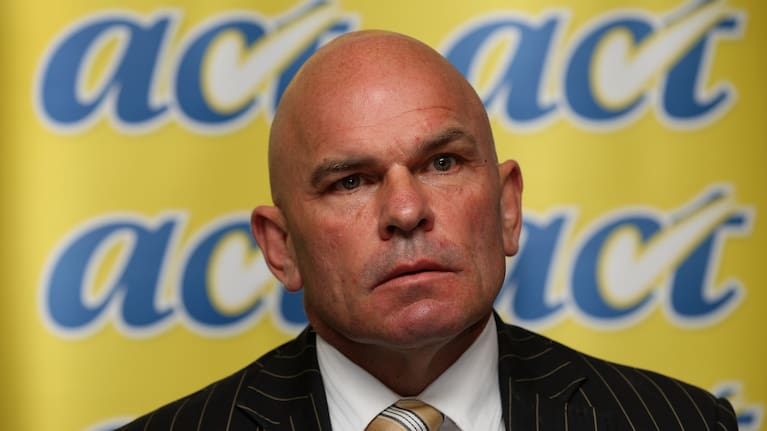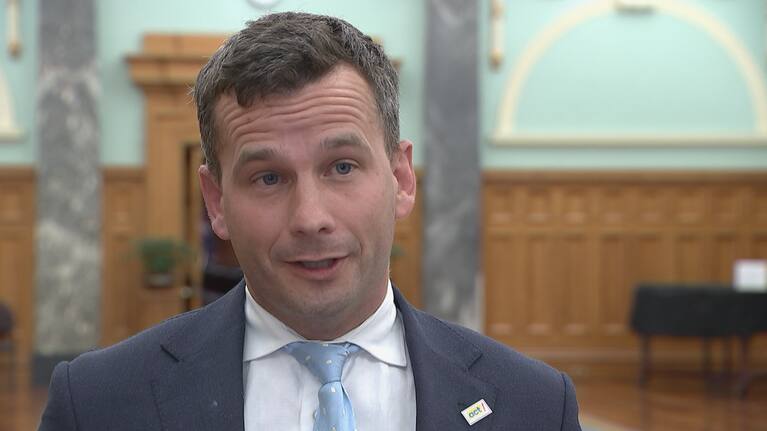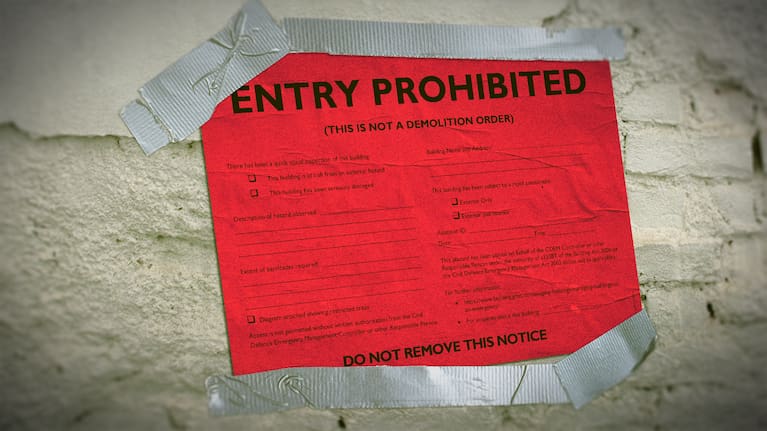ACT Party leader David Seymour says the party hasn't contributed to climate change denial.
Speaking on Q+A, Seymour said the party's scepticism on climate science was before his time as party leader, and that ACT had credibility on the climate crisis today.
"You're digging up something that was on a website - what, seven years ago?" he said.
"If you actually look at what I've said, and what I believe, then the credibility is very strong. If you want to dig up something on the Wayback Machine from a website a long time ago, then you can play that game."
Additionally, Seymour said he has "absolutely" questioned how dangerous climate change was in the past because "the question is what's the extent of the danger of anything?"
"It's not a case of, ‘This is our faith; this is our belief; any and all measures are suitable.’ I'm interested in digging into the detail and getting practical," he said.
In a policy document, last accessible in 2016, ACT suggested: "New Zealand is not warming. There is no warming trend since 1970, and the slight warming trend since 1950 is not statistically significant.
"If it were to warm moderately, we would likely benefit in terms of land-based production, human health and reduced heating bills," the party said on its website.
Seymour said he disagreed with that statement: "I believe New Zealand is warming," he said.
"I wasn’t aware of that statement. I don’t know exactly what you’re referring to."
The ACT leader didn't accept the notion that his party has contributed to climate change denial in its past.
"No, what we've done is contributed to climate change understanding."

In addition, Seymour distanced himself from a statement from former leader Rodney Hide, saying that the claim was made 15 years ago when he lived in a different country.
In 2008, Hide argued in Parliament that "the entire climate change and global warming hypothesis is a hoax."
Seymour responded: "I disagree with that statement, but I also point out that it's, what, 15 years ago. If I'm going to be held to the standard of what each party said in 2008, we could play that game all day."
Meanwhile, speaking to Q+A in 2014, then-ACT leader Jamie Whyte said: "I'm not buying the policy of mitigation" and that there was "some debate" on whether humans played a role in causing climate change.
Later, host Jack Tame pressed Seymour on his assertion that he had talked down how dangerous climate change could be.
"I don't know who maintained that website at that time. That's another question," he said.
"But can we talk about what I'm telling you today, which is that actually, if you want to judge me by the statements that I've made and what I've said, then actually I think we've contributed—" Tame interjected: "You said climate change isn't dangerous."
Seymour clarified that he questioned the extent to which it was dangerous — which he said: "I think that’s healthy" and criticised Tame's "Wayback Machine tirade".
"Again, you want to play this game of digging up 15-year-old statements. I'm not interested in that. What I'm interested in is what can New Zealand do practically now?
"I believe that ACT has the most robust and sensible climate policy of any party in New Zealand today."
"That is that we cap our emissions under the Emissions Trading Scheme in line with our trading partners; we adopt the same policy as the people we do business with around the world. Then we put our efforts into climate change adaptation."
Refusing the notion that ACT has lost credibility on climate change policy, Seymour said: "If you follow the policies that I have advocated, then we'd be in a much better space."
ACT's cyclone recovery plan
"There's three basic options," Seymour identified in paying for disaster recovery. "One is tax people more and harder, two is borrow and tax tomorrow’s taxpayers, and three is to look really hard at the government’s books and reduce expenditure."

"In our plan, we've produced 15 ideas, but they start with the idea that we cannot afford to have another borrow-and-spend disaster recovery."
Seymour claimed ACT's alternative budget showed that it was possible to reduce expenditure by $6.8 billion this year and $9.5 billion next year without "touching any frontline health, education or police".
"That is, for example, reducing the number of public servants in Wellington back to 2017 levels — that would save you $900 million straight away."
He defended his calls to suspend minimum wage increases and fair pay agreements for three years in Hawke's Bay and Tairāwhiti.
"It's all about government getting out of the way, listening to local people and empowering locals to rebuild what they had in a smarter way this time."
Questioned whether workers would be incentivised to move to, or stay in, areas that have lost these workers' protections, Seymour argued bureaucratic reduction would lead to more jobs and a cheaper rebuild.
"Maybe people want to do it anyway, and maybe they won't go because there's too much bureaucracy and the minimum wage is too high for jobs to be offered in the first place.
"Leaving the minimum wage low, getting Fair Pay Agreements off the table for the foreseeable future, that will help people do the work they need to rebuild," he said.
Seymour also called for council consents to be replaced by mandatory insurance on new builds: "That way, an insurance company is working out, maybe this risk is worth it; maybe it's not. And I think it's become a more relevant policy after these disasters because what we've seen is that often councils haven't made the right calculation.
"What's more, if we start having councils or central government bailing people out, the only way they're going to respond is the same way they responded after leaky buildings.
"They will put more stringent bureaucracy and requirements on people who want to build, because they are on the hook."

He said ACT's "fresh and practical ideas" could counter perceptions of Aotearoa being "the land of the long red tape".
Seymour said that while his heart goes out to people deeply affected by natural disasters, he opposed land value bailouts for homeowners.
"If you focus on those people who are very hard up, and your heart goes out to them — and I've visited some of them, then it's easy to say, yes, absolutely. But you've also got to think about all New Zealanders in the long term," he told Q+A.
"If there's an expectation that the Government has to buy your land because it's guilty of not stopping you building, I'll tell you what the Government is going to do. It's going to get really zealous about stopping people building."
Q+A is Public Interest Journalism funded through NZ On Air





















SHARE ME